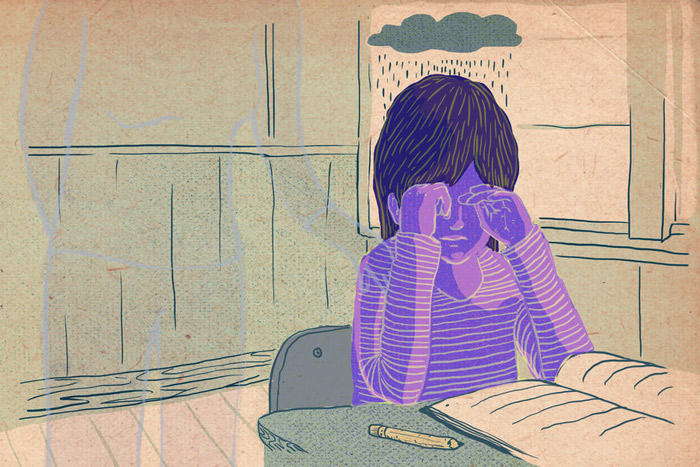Dear Ainsley,
A couple of weeks ago, one of my oldest friends committed suicide. I’m still completely in shock about the situation and can’t shake the feeling that I could have done something to help them. I’m having a lot of trouble processing this situation, and I’m not sure how to grieve while keeping up with my studies. Do you have any advice on how to cope?
Sincerely,
Missing my friend (MMF)
Dear MMF,
I’m so sorry for your loss and can only imagine how hard this must be for you. A few years ago, a close friend of mine committed suicide, and I know how difficult it is to wrap your head around the situation. I think the most important piece of advice I can give you is to take the time you need to process and heal in whatever way you find works best for you.
No matter how you choose to heal, understand that it’s important to acknowledge your emotions rather than push them aside. During this time, make sure to surround yourself with supportive people. Keep in mind, however, that friends and family aren’t therapists and that seeking professional help could be very useful for you in coping with your feelings. I highly recommend talking to a professional, as they know best how to guide you through your grieving process.
Even though we’re in the thick of midterms, take a couple of days off of school if you feel like you need to. Don’t be afraid to approach your professors and ask for extensions; they will most likely be understanding if you explain to them what’s happened. And if you feel comfortable doing so, reach out and tell your closest classmates what is going on so that they can support you and send you notes if you miss class (or, like me, you accidentally have a breakdown in a 200+ person lecture). Good friends will support you no matter how you’re feeling, and giving you lecture notes is an easy way for them to help out.
Over the course of the healing process, you might find yourself feeling guilty, or even angry at your friend. It is completely normal to feel this way, but remember that none of this was your fault. Suicide—while heartbreaking—is a decision reached during a very personal struggle and, most of the time, your actions could not have changed the outcome. Although I know you must feel completely blindsided and guilt-ridden for not noticing the signs, it’s important to remember that you can’t ‘solve’ depression or relieve someone’s suicidal thoughts by being a good friend. However, know that there are still things you can do after the fact to show that you care.
If you’re able to, go to your friend’s memorial service; this will be a place to grieve with people who are going through the same thing you are. By being together, you can better support each other, especially by exchanging stories about your friend’s life. For me, reaching out to my late friend’s family made me feel better, because it reminded me that I wasn’t alone. By spending time with their family—or even writing them a letter expressing your sorrow—you’ll be offering them support that they really need.
Additionally, there are other ways to celebrate your friend’s life if you’re not able to attend their memorial service. For example, when my friend committed suicide, I wasn’t able to fly out to the funeral; instead, I climbed up the mont Royal to reflect on their life and my best moments with them. Another way to do this is by posting on their social media pages. Even though your friend is gone, the occasional post on their Facebook wall will keep their memory alive and help you feel like they’re still there. You might also find joy in donating to a charity that focuses on mental health, or even becoming involved in mental health activism to help others struggling with suicidal thoughts in the future.
No matter what, know that the manner in which you grieve is valid. The stages of grieving, especially after someone close to you commits suicide, are extremely personal. Coping is different for everyone. Although it may not seem like it right now, you will get through this. Your friend would want you to remember the good memories you had with them and they would want to see you thrive. You are strong, and time will heal.
With love and hugs a thousand times over,
Ainsley
If you or a friend are struggling with mental health, McGill has resources that you can turn to, including therapy sessions and workshops. The McGill Mental Health Hub is an excellent start in understanding the resources available to you. The McGill Nightline is another option in less urgent cases and can be reached at 514-398-6246. Please don’t forget that if you feel that you or a friend are in immediate danger, make sure to call 9-1-1 or, if you’re on campus, Campus Security at 514-398-3000. Outside of McGill, the Quebec Suicide Hotline also offers 24-hour support to those in crisis situations.







